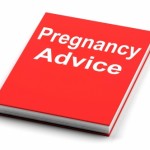 As soon as you announce you’re pregnant, you’ll start hearing all the old wives’ tales—some that are funny and some that are downright strange. But there are other, more modern pregnancy myths that you might find frightening or confusing, so we’re here to help!
As soon as you announce you’re pregnant, you’ll start hearing all the old wives’ tales—some that are funny and some that are downright strange. But there are other, more modern pregnancy myths that you might find frightening or confusing, so we’re here to help!
Is it Safe to Exercise When You’re Pregnant?
Unless you are a high-risk patient or have been told specifically by your doctor not to exercise, participating in fitness activities during pregnancy can have a positive impact on you and your baby. Here are two myths it’s safe to ignore:
- Myth #1: Never get your heart rate over 130 while exercising during pregnancy. There is no one “target” heart rate that’s right for every pregnant woman. Talk to your doctor about how to calculate your RPE, or rate of perceived exertion.
- Myth #2: It’s not safe to do abdominal work during pregnancy. Actually, strengthening your abdominals, your core and your pelvic floor throughout will help not only during pregnancy, but also during labor, delivery and recovery. It can also help with posture problems, which will be a benefit after your baby is born. But because you should avoid any exercises that involve lying on your back after the first trimester, try gentle standing pelvic tilts, seated belly breathing, or tightening abs, holding, then releasing.
What Foods Shouldn’t You Eat?
Most of the no-nos just involve common sense: don’t eat raw foods or drink raw milk. According to our doctors, here are the foods you should avoid or take extra precautions with when expecting:
- Raw or rare meat
- Deli meat (unless you heat the meat until it is steaming)
- Fish that contain high levels of mercury, including shark, swordfish, king mackerel and tilefish. Canned, chunk light tuna can be eaten in moderation.
- Raw Sushi: You can eat sushi if it’s cooked.
- Raw Shellfish
- Imported Soft Cheeses including Brie, Camembert, feta, gorgonzola and queso fresco, unless they clearly state that they are made from pasteurized milk.
- Caffeine: Caffeine intake in moderation is okay. Avoid it during the first trimester, then limit yourself to fewer than 200 mg per day during the pregnancy.
Can I Travel By Plane When Pregnant?
Airline travel is considered safe for pregnant women, but most airlines will require you to have permission from your health care provider if traveling during your ninth month. You should also carry contact information for your doctor. Three other tips:
- Stay hydrated, and get up and walk around about once every hour. It’s important to keep your circulation going.
- Choose an aisle seat, which will allow you to get up and out more easily or stretch your legs and back.
- Travel on major airlines with pressurized cabins and avoid smaller private planes. If you can’t avoid smaller planes, avoid altitudes above 7,000 feet.
At Chouchani, Sayegh and Bagnarello, our goal is to help you have a safe and healthy pregnancy. Please contact us if you have any questions about your own situation!
Photo courtesy of freedigitalphotos.net
More
 There’s no getting around it: if you’re a mom, you’re going to have stress. Yes, you love your children, but the pressure of taking care of another person’s needs all day long—and sometimes part of the night—can drain you of energy and make you feel lousy. Here are four things you can do to reduce your stress and feel more in control:
There’s no getting around it: if you’re a mom, you’re going to have stress. Yes, you love your children, but the pressure of taking care of another person’s needs all day long—and sometimes part of the night—can drain you of energy and make you feel lousy. Here are four things you can do to reduce your stress and feel more in control:
Stop trying to be a “perfect” mother.
Between TV, magazines and websites like Pinterest, mothers see images of immaculate, perfectly organized houses and clean, smiling kids. Instead of trying to replicate that false perfection, try a few shortcuts:
- Cut down on laundry by letting your kids stay in the same clothes all day, even if they get a little dirty. Obviously, there are some stains you don’t want your child to wear all day, but a little juice, food or dirt never hurt anybody.
- Use paper plates and cups to save time and water usage. This means fewer dishes to wash and more time you can spend on the fun aspects of motherhood.
- Allow your house to be a little messy. Every bed doesn’t need to be made, every toy doesn’t have to be put away, and not every floor needs to be swept 20 times a day. Kids make messes, and that’s okay.
Realize that you’re not alone.
Go to any search engine and put in the search term “online motherhood support groups.” Pages and pages of results will pop up. The Internet can be a great source of support, advice and commiseration, which you can get on your own time, on your own terms. There are also real-life support groups in most towns, like MOPS (Mothers of Preschoolers), Mothers of Twins, Parenting without Partners and more. Look for groups in your area and try to attend some meetings, so you can connect with others who are in the same boat.
Know where to go for help.
Nobody has all the answers about motherhood, but again, the Internet can be a great resource. If you do join an online support group, you can ask questions of your fellow members. Or there are plenty of websites out there that can answer any question you might have—no matter how weird it seems to you, chances are somebody has asked it already. If your question deals with a health concern, call your pediatrician’s office, of course. And if she’s available, you can always ask your own mom or your mother-in-law.
Take some time for yourself.
This is probably the hardest one for most moms, but one of the most important. If you’re feeling exhausted, upset, resentful or anxious, you’re not going to be the best parent you can be. Whether it’s something as simple as a 20-minute soak in the tub while listening to music, a walk around the neighborhood, coffee with a friend or something more ambitious like taking an exercise or yoga class, you need a break from the pressures and responsibilities of being Mom, 24/7.
From all of us at Chouchani, Sayegh and Bagnarello, have a happy, healthy Mother’s Day. If you or someone you know is looking for a top OB-GYN practice in Buffalo, please give our friendly staff a call today.
More
 This year marks the 25th anniversary of National Infertility Awareness Week, held from April 20–26, 2014. Sponsored by RESOLVE: The National Infertility Association, this year’s slogan is “resolve to know more.”
This year marks the 25th anniversary of National Infertility Awareness Week, held from April 20–26, 2014. Sponsored by RESOLVE: The National Infertility Association, this year’s slogan is “resolve to know more.”
The stated goal of NIAW is to raise awareness about the disease of infertility and encourage the public to understand their reproductive health.
What does this mean?
While many people may think that infertility affects only women, it also impacts men, and healthcare and mental health professionals of both sexes. One in eight U.S. couples of childbearing age is diagnosed with infertility—7.3 million women in the U.S. and their partners, which constitutes approximately 12% of the reproductive-age population. Women and men are equally affected: one third of infertility cases can be attributed to female factors, one third to male factors, and one third a combination of female and male factors or unexplained.
The media tends to focus only on age-related infertility issues or on those women who take extreme measures, like “Octo-Mom,” but the truth is that infertility affects women of all ages and backgrounds. And not all women can afford infertility treatment.
Insurance coverage for infertility is only available in 15 out of 50 states in America. And while cost information is hard to come by, Resolve has put together the following estimates:
- Average cost of an IUI cycle: $865; Median Cost: $350
- Average Cost of an IVF cycle using fresh embryos (not including medications): $8,158; Median Cost: $7,500
- Average additional cost of ICSI procedure:$1,544; Median Cost: $1,500
- Average additional cost of PGD procedure: $3,550; Median Cost: $3,200 (Note: Medications for IVF are $3,000 $5,000 per fresh cycle on average.)
When insurance doesn’t pay, those costs are borne by the couple attempting to get pregnant.
Resolve also hopes that NIAW will raise awareness of the options available to women or couples who cannot conceive without assistance. In addition to fertility medications and assisted reproductive technology such as intrauterine insemination (IUI) and in-vitro fertilization (IVF), these options include:
- Adoption
- Donor Options
- Living Childfree
- Surrogacy
Finally, NIAW helps to educate women on their bodies, providing basic information on the female reproductive system and how conception occurs, and more specific information on ovulation and fertility, the menstrual cycle, the male reproductive system and hormones in both genders.
To find out more about National Infertility Awareness Week, visit their website.
At Chouchani, Sayegh and Bagnarello, we are committed to helping our patients with family planning and infertility. Please contact us today to talk with one of our knowledgeable OB-GYN doctors in Western New York. We have three convenient locations across Western New York.
More
 There’s really no such thing as a “normal” period, only because every woman’s period, or menstrual cycle, is unique. But girls and women of all ages have questions, because your cycle will also change over the course of your lifetime. Here are some frequently asked questions from the perspective of different age groups.
There’s really no such thing as a “normal” period, only because every woman’s period, or menstrual cycle, is unique. But girls and women of all ages have questions, because your cycle will also change over the course of your lifetime. Here are some frequently asked questions from the perspective of different age groups.
Teenagers
Almost all teenage girls wonder “When will I get my period?” If they haven’t already, that is! Usually, girls get their periods at around age 11 or 12, but it can happen at any age from 8 to 16. It may happen around the same time that your mom first got hers. If you haven’t gotten your period within three years of when your breasts started to grow, talk to your parent or guardian, your doctor or another adult you trust.
Four other common questions that teenagers ask?
- What exactly is “a period”? Once you’ve hit puberty, your uterus will build up a lining of blood and tissue to prepare for the possibility of being pregnant. That lining would be needed if your egg was fertilized by a sperm cell, as a place for the egg to attach and begin growing into a baby. When the egg doesn’t get fertilized, that blood and tissue comes out.
- What will it look like? Your period flow can be light, heavy, or somewhere in between. It can be light red or dark red and may change from day to day.
- How long will it be? Periods usually last between three and five days, but it’s normal to have periods that are either shorter or longer. It is also normal if your periods are not the same number of days each month, especially in the first years.
- When does it happen? In general, a menstrual cycle takes place over about one month, around 23 to 35 days. But every female’s cycle is different. Try to keep track of when you get it, so you can see if a pattern forms.
Women In Their Thirties and Forties
As you move past your peak fertility years, even if you’ve always had regular periods, you may experience longer, irregular cycles up to 45 days. You may see signs of approaching menopause, like hot flashes and mood changes.
If you’re not approaching menopause, other causes of irregular periods may include stress dramatic weight loss, or sudden weight gain. All of these conditions can affect your body’s hormone levels and may cause changes in the length of your cycle. Medications such as antidepressants can also cause cycle changes. Talk to your doctor if you see any consistent changes in your cycle.
Any more questions? Need a doctor or other professional you can talk to? Call or contact Chouchani, Sayegh and Bagnarello M.D. anytime. You’ll love our caring and knowledgeable doctors and staff.
More
Menopause is something only old ladies get, right? At the very least, it’s something your grandmother or your mom goes through.
Actually, approximately 1 in every 1000 women between the ages of 15-29 and 1 in every 100 women between the ages of 30-39 develop premature menopause—that is, menopause that occurs before the age of 40.
Women may hit menopause early due to genetics, illness, or medical procedures. Some common genetic conditions that cause it include a history of the condition among the women in your family or an autoimmune condition such as hypothyroidism, Crohn’s disease, lupus or rheumatoid arthritis. But in the vast majority of cases, the cause can’t be found.
Illnesses and medical procedures that can bring on premature menopause include:
- Chemotherapy or pelvic radiation treatments for cancer. These treatments can damage the ovaries and cause your periods to stop.
- Surgery to remove the ovaries. Surgical removal of both ovaries causes menopause right away. A woman’s periods will stop after this surgery, and her hormones drop quickly.
- Surgery to remove the uterus. Some women who have a hysterectomy are able to keep their ovaries, but because their uterus is removed, they no longer have their periods. The surgery can sometimes affect the blood supply to the ovaries, too. Menopause may not be immediate but often occurs a year or two earlier than expected.
How do I know if I have early menopause?
If you are under the age of 40 and haven’t had your period for 12 months in a row, talk to your doctor. The first thing to discuss is whether you’ve had signs like hot flashes, sleep problems and vaginal dryness. The next step is to run some blood tests that can measure estrogen and related hormones. Because your hormone levels change daily, you may need to be tested more than once to know for sure.
Why should I worry about going through early menopause?
Just like any menopausal woman, women in premature menopause experience lowered estrogen levels as the ovaries stop most of their production of this hormone. And these low levels of estrogen can increase your risk for certain medical conditions, such as osteoporosis, colon and ovarian cancer, periodontal (gum) disease, tooth loss and cataract formation. Early menopause means you’ll spend a greater portion of your life without the protective benefits of your own estrogen.
Chouchani, Sayegh and Bagnarello is a premier OB-GYN practice located in Western New York. We were established over 30 years ago with two generations of experience. If you’re worried about any changes you’re noticing in your cycle or your body, contact your doctor or call us here at Chouchani, Sayegh and Bagnarello at 716.633.6363. We’d be happy to discuss your symptoms with you.
More
 You’re constantly being told that you should exercise, but it can be hard to find the time—let alone the motivation! Maybe you don’t have to lose weight. Maybe you realize that the images of women’s bodies you see in magazines are as phony as a three-dollar bill. But the best reasons for getting exercise are not about how you look. There are several health issues that you can treat, or avoid, just by exercising regularly.
You’re constantly being told that you should exercise, but it can be hard to find the time—let alone the motivation! Maybe you don’t have to lose weight. Maybe you realize that the images of women’s bodies you see in magazines are as phony as a three-dollar bill. But the best reasons for getting exercise are not about how you look. There are several health issues that you can treat, or avoid, just by exercising regularly.
- Exercise will keep your heart healthy. Your heart is the hardest working muscle in your body, and any exercise that elevates your heart rate and breathing makes your heart healthier and stronger. And if you have a family history of heart disease, enjoying regular exercise can add a few years to your life.
- Exercise helps relieve stress. And we all have stress! Whether at work or at home, whenever you’re feeling stressed, get up and go for a walk or a bike ride. It’ll help calm you down and use that nervous energy for productive results.
- Exercise plays a major role preventing osteoporosis, a disease that is particularly prevalent in women. Lifting weights, running, yoga and other activities can help delay or even prevent osteoporosis.
- Exercise helps moms set a great example for their children. You’ll be teaching them about self-discipline and demonstrating how to be healthy, and the energy you get from exercise can only help you with parenting!
- Exercise may prevent certain cancers, especially breast cancer. That’s a great reason to do it.
- Exercise will lift your mood! You’ll feel great when you exercise regularly. It releases endorphins into your bloodstream that will help you sail through most of your day.
- Exercise will help you live longer! Research has proven that you can extend your lifespan by exercising regularly.
- Exercise can help you lose weight, or just control and manage it. Either way, you’ll avoid many health problems associated with being overweight.
So, what kind of exercise should you be doing?
Get some cardiovascular exercise for sure, but don’t take it too easy on yourself. If your workouts consist of lifting light weights and slow-paced cardio, you likely won’t get great results. Try:
- High-intensity training – you need to sweat and increase your heart rate.
- Heavier lifting – Doing fewer reps with more weight will burn more fat and increase your strength.
- Focusing on your upper body more often – This is an area that women need to concentrate on building.
And don’t forget, you don’t have to join a gym to get exercise. Walk, run or bike around the block, chase your kids or your dog around the yard, or lift weights while you’re watching TV. As the old slogan said, “Just do it!”
Looking for a top OBGYN practice in Buffalo? The doctors at Chouchani, Sayegh and Bagnarello MD are committed to helping our patients achieve and maintain a healthy lifestyle. We are committed to women’s health. Call us to find out more information about our practice or make an appointment today!
More
 For the best chance of having a healthy baby, you want to have a healthy pregnancy. Luckily, there are plenty of resources in Western New York that can help pregnant women do just that. Here are a few options:
For the best chance of having a healthy baby, you want to have a healthy pregnancy. Luckily, there are plenty of resources in Western New York that can help pregnant women do just that. Here are a few options:
Catholic Health’s WomenCare program offers a wide variety of prenatal classes, given at either Mercy Hospital or Sisters of Charity Hospital, including:
- Prepared Childbirth – Designed mostly for the first time mom, these classes cover relaxation and breathing techniques and more.
- Prepared Childbirth Refresher – This class refamiliarizes you with what to expect during and after pregnancy.
- Preparing to Breastfeed – Learn about the initial breastfeeding experience and what to expect at home.
- Twinformation Classes – These cover the special needs of twin pregnancy.
- Baby Talk – Topics discussed include common newborn concerns such as bathing, breastfeeding, bottle feeding and more.
- Sibling Classes – introduces pre-school and young children to the exciting role of being a big brother or sister
Kaleida Health holds prenatal classes at both Millard Fillmore Suburban Hospital and Women & Children’s Hospital of Buffalo. Their classes cover topics such as:
• Labor and delivery
• Breathing techniques
• Exercises
• Caesarean births
• Recovery
• Parent classes
• Infant feeding and care
• Sibling classes
• Infant safety and CPR
• Infant development and stimulation.
If you are interested in natural childbirth, you can explore the options presented by WNY Childbirth Education and Doula Services. They offer an 8-week series of natural childbirth classes that promise to teach students about the labor process and help to create a set of skills and techniques to use in labor instead of medication. They also offer a “One Day Crash Course” for moms that have already been through labor and birth before, or for anyone with a quickly approaching due date that doesn’t have eight weeks. The crash course lasts about five hours and covers the stages of labor, labor coping techniques, coaching skills, and birth choices.
Other options include BlueCross BlueShield’s Right Start Prenatal Program for its members in Erie County and the Young Parents Program sponsored by Catholic Charities of Buffalo, which provides services both in the home and at the Ken-Ton Family Health Center and Mercy Hospital.
Chouchani, Sayegh and Bagnarello is an OBGYN practice in Buffalo where we are committed to helping our patients achieve a healthy pregnancy. We believe in supporting the total health of our patients and our community. If you have any questions about how to have a healthy pregnancy, please call or contact us anytime.
More
 Endometriosis is a common health problem in women and girls. In fact, this painful, chronic disease affects at least 6.3 million women and girls in the United States, 1 million in Canada, and millions more worldwide. Endometriosis can occur in any teen or woman who has menstrual periods.
Endometriosis is a common health problem in women and girls. In fact, this painful, chronic disease affects at least 6.3 million women and girls in the United States, 1 million in Canada, and millions more worldwide. Endometriosis can occur in any teen or woman who has menstrual periods.
What is it?
Endometriosis (pronounced en-doh-mee-tree-OH-suhs) gets its name from the word endometrium (en-doh-MEE-tree-um), the tissue that lines the uterus or womb. Endometriosis occurs when this tissue grows outside of the uterus on other organs or structures in the body.
Most often, endometriosis is found on the:
- Ovaries
- Fallopian tubes
- Tissues that hold the uterus in place
- Outer surface of the uterus
- Lining of the pelvic cavity
It can also grow spread to the vagina, cervix, vulva, bowel, bladder or rectum.
How do I know if I have endometriosis?
The most common symptom of endometriosis is pain in the lower abdomen or pelvis, or the lower back, mainly during menstrual periods.
Why?
The misplaced tissue develops into growths or lesions that respond to the menstrual cycle in the same way that the endometrium does: each month the tissue builds up, breaks down, and sheds. Menstrual blood flows from the uterus and out of the body through the vagina, but the blood and tissue shed from endometrial growths has no way of leaving the body. This results in internal bleeding, breakdown of the blood and tissue from the lesions, and inflammation — and can cause pain, infertility, scar tissue formation, adhesions, and bowel problems.
Symptoms of endometriosis can include:
- Very painful menstrual cramps
- Chronic pain in the lower back and pelvis
- Pain during or after sex
- Intestinal pain
- Painful bowel movements or painful urination during menstrual periods
- Spotting or bleeding between menstrual periods
- Infertility or not being able to get pregnant
- Fatigue
- Diarrhea, constipation, bloating, or nausea, especially during menstrual periods
What should I do if I think I have endometriosis?
Visit your doctor as soon as possible. Sometimes endometriosis is mistaken for other health problems that cause pelvic pain and the exact cause might be hard to pinpoint.
The only way for your doctor to know for sure that you have endometriosis is to perform a minor surgical procedure called a laparoscopy (lap-ar-OS-ko-pee) on you. Performed under anesthesia, a laparoscopy will allow your doctor to see the location, size, and extent of any endometrial growths. This will help you and your doctor make better treatment choices.
At Chouchani, Sayegh and Bagnarello OBGYN, we are experienced in the diagnosis and treatment of endometriosis. If you would like to know more about this condition or what you can do about it, please contact us any time. We are a premier OBGYN practice in Buffalo with locations in Kenmore, Alden and Willamsville.
More
 If you made New Year’s resolutions for 2014, probably at least one of them was related to health or fitness. And if you’re like most people, you’ve already started to fall behind on those resolutions, if you haven’t given up already.
If you made New Year’s resolutions for 2014, probably at least one of them was related to health or fitness. And if you’re like most people, you’ve already started to fall behind on those resolutions, if you haven’t given up already.
It’s normal to find it tough to stay on track with a regular fitness routine, but let’s make this the year you take care of you. Try these practical tips that are easy to implement and can drastically increase your chances for success.
1. Start a goal board.
This can be as small as placing Post-It notes in strategic places to keep your resolutions top of mind, or as large as a white board where you outline your personal goals and plans for the year. Putting your goals in writing, where you can see them, helps not only with visual motivation but also to chart your progress.
2. Create monthly goals.
It’s common to lose sight of your New Year’s fitness goals by mid-February, but if you have specific goals set for each month, it can help keep you motivated and on track. What’s your goal for this month? Keep it SMART— specific, measurable, attainable, realistic and timely.
3. Take small steps.
Drink 8 ounces of water every morning before having a cup of coffee. Exercise three times a week for 30 minutes (60 minutes if you are active already). Use the stairs at work instead of the elevator. Turn off all technology by 8 p.m., go to bed at 10 p.m., and wake up at 6 a.m. Prepare a healthy lunch and snacks for the next day before you go to bed. These little lifestyle changers will add up!
4. Create support for yourself.
Tell friends about your plans. Find a community or group—online or in person—that is on a similar path. Nothing helps keep you on track more than supportive friends, who can encourage you along the way and congratulate you when you have achieved a milestone. And checking in with your network helps keep you accountable for your actions and helps you celebrate your progress.
5. Keep on moving.
Sometimes setbacks will happen, but don’t throw in the towel and quit if you have a bad day or a bad week. Just keep moving forward and get started again. It’s never too late to start again when it comes to your health!
At Chouchani, Sayegh and Bagnarello, your health is our top priority! Please call and make an appointment if you’d like to visit a top OBGYN practice in Buffalo that cares about your overall well-being.
More
 This month, you’ll see hearts everywhere in celebration of Valentine’s Day. Have you ever stopped to consider whether you’re taking care of your own heart? While February 14th only comes once a year, you can boost your own heart’s health 365 days a year with these five tips:
This month, you’ll see hearts everywhere in celebration of Valentine’s Day. Have you ever stopped to consider whether you’re taking care of your own heart? While February 14th only comes once a year, you can boost your own heart’s health 365 days a year with these five tips:
1. Find activities you love
Maybe you’ve always thought that making exercise a regular part of your life means sweating it out for hours at the gym. But activities like walking, dancing in your living room, swimming, bowling and even cleaning the house can count as exercise as long as you’re getting a little out of breath when you’re doing them.
Make a list of all of the active things you like to do and find a way to make at least one of them a part of your day, every day. Once you’ve made those activities into regular habits, try new ones—maybe now you’d feel more confident joining an exercise or dance class.
2. Remember the power of 10
You may think you don’t have time to exercise, but you can get heart-health benefits from just 10-minute bouts of activity. For example, ten minutes of walking three times a day has been shown to lower blood pressure more effectively than a one 30-minute stretch of walking. Try a simple schedule of walking once before work, once over lunch and once after dinner, and you’ve just squeezed in a good amount of exercise!
3. Add something other than cardio
When you think of heart-healthy exercise, you probably think of aerobic or cardiovascular activities like jogging. But strength training, like lifting weights or doing push-ups and lunges can improve the health of your ticker, too. When you lift weights at a moderate intensity, you’ll raise your heart rate—you’ll be working both your muscular system and your cardiovascular system. And when you make your muscles stronger, you make your entire body stronger. So try to do some resistance training a few times a week.
4. Find ways to lower your stress level
Stress plays a critical role in heart health, and exercise is great at kicking stress to the curb. Workouts like yoga, Pilates and Tai Chi are especially good for de-stressing and improving the mind-body connection. If you’re not ready to try those activities, try meditation or just a relaxing hot bath with some soft music playing. It’s important to give your heart a break from the stresses of your regular lifestyle.
5. Eat healthy foods
Of course you have to fuel yourself right to power yourself through your day and your workouts. Eating a diet that’s rich in fruits, veggies, whole grains, lean proteins and healthy fats is key. Colorful foods like pomegranates, blueberries, tomatoes, and spinach are rich in heart-healthy antioxidants, while fatty fish like salmon, sardines, or rainbow trout twice a week provide omega-3 fatty acids, which help decrease your blood pressure.
At Chouchani, Sayegh and Bagnarello, we promote a patient’s total health. If you’d like to find out more about our OB-GYN practice in Buffalo, call us anytime or visit our website at wny-obgyn.com.
Photo courtesy of freedigitalphotos.net.
More
 As soon as you announce you’re pregnant, you’ll start hearing all the old wives’ tales—some that are funny and some that are downright strange. But there are other, more modern pregnancy myths that you might find frightening or confusing, so we’re here to help!
As soon as you announce you’re pregnant, you’ll start hearing all the old wives’ tales—some that are funny and some that are downright strange. But there are other, more modern pregnancy myths that you might find frightening or confusing, so we’re here to help!







